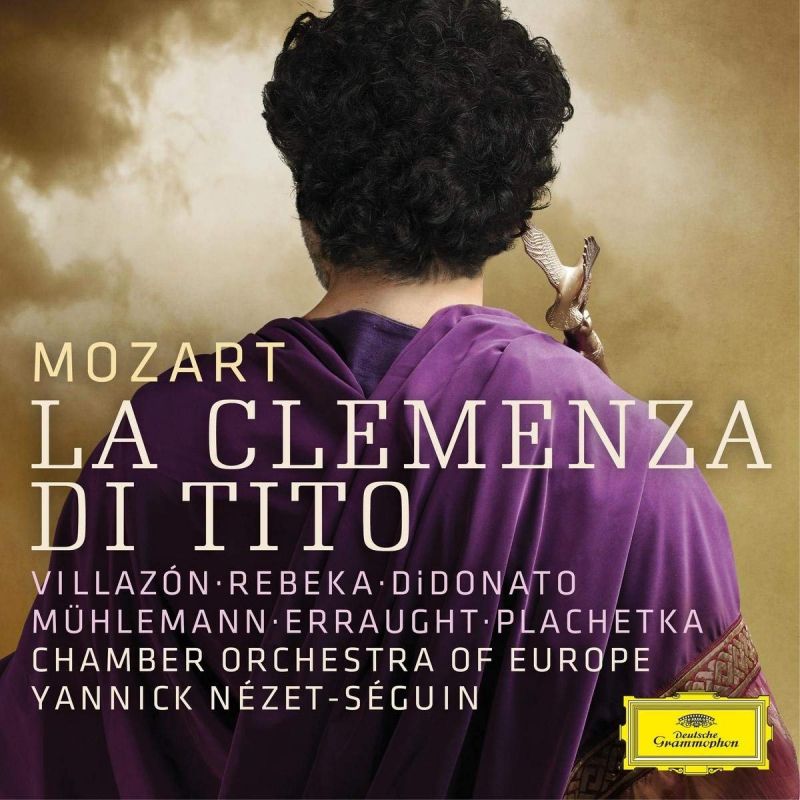MOZART La Clemeza di Tito ( Nézet-Séguin)
View record and artist detailsRecord and Artist Details
Composer or Director: Wolfgang Amadeus Mozart
Genre:
Opera
Label: Deutsche Grammophon
Magazine Review Date: AW18
Media Format: CD or Download
Media Runtime: 141
Mastering:
DDD
Catalogue Number: 483 5210GH2

Tracks:
| Composition | Artist Credit |
|---|---|
| (La) Clemenza di Tito |
Wolfgang Amadeus Mozart, Composer
Adam Plachetka, Publio, Bass Berlin RIAS Chamber Choir Chamber Orchestra of Europe Joyce DiDonato, Sesto, Mezzo soprano Marina Rebeka, Vitellia, Mezzo soprano Regula Mühlemann, Servillia, Soprano Rolando Villazón, Tito, Tenor Tara Erraught, Annio, Mezzo soprano Wolfgang Amadeus Mozart, Composer Yannick Nézet-Séguin, Conductor |
Author: David Vickers
One of the drawbacks of the series is featherweight notes that resemble effusive press releases rather than expert essays. Nevertheless, the booklet presents Nézet-Séguin’s shrewd observation that ‘dramatic expression has nothing to do with the number of notes or whipped-up orchestration. It’s often just small details … but these open up new worlds of expression and emotion. That’s why we have to be so attentive in Mozart: because every single note is precious and important.’ This perspective is borne out by the Chamber Orchestra of Europe’s superb playing, conducted as intelligently as any of the most satisfying versions in the discography (to my reckoning, Gardiner, Hogwood and Mackerras). Moreover, its origin as a concert performance does not inhibit the imperative senses of theatrical flow and emotional momentum. The RIAS Chamber Choir play their valuable part to perfection, not least in the rapidly unfolding tensions of the Act 1 finale (magnificently done by all participants) and at the miraculous transition sprung from Vitellia’s penitent soliloquy directly into the wide-open public space of the amphitheatre setting for the final scenes – a moment bowdlerised by Jérémie Rhorer in his recent account but here conducted flawlessly by Nézet Séguin.
Discover the world's largest classical music catalogue with Presto Music.

Gramophone Digital Club
- Digital Edition
- Digital Archive
- Reviews Database
- Full website access
From £8.75 / month
Subscribe
Gramophone Full Club
- Print Edition
- Digital Edition
- Digital Archive
- Reviews Database
- Full website access
From £11.00 / month
Subscribe
If you are a library, university or other organisation that would be interested in an institutional subscription to Gramophone please click here for further information.




